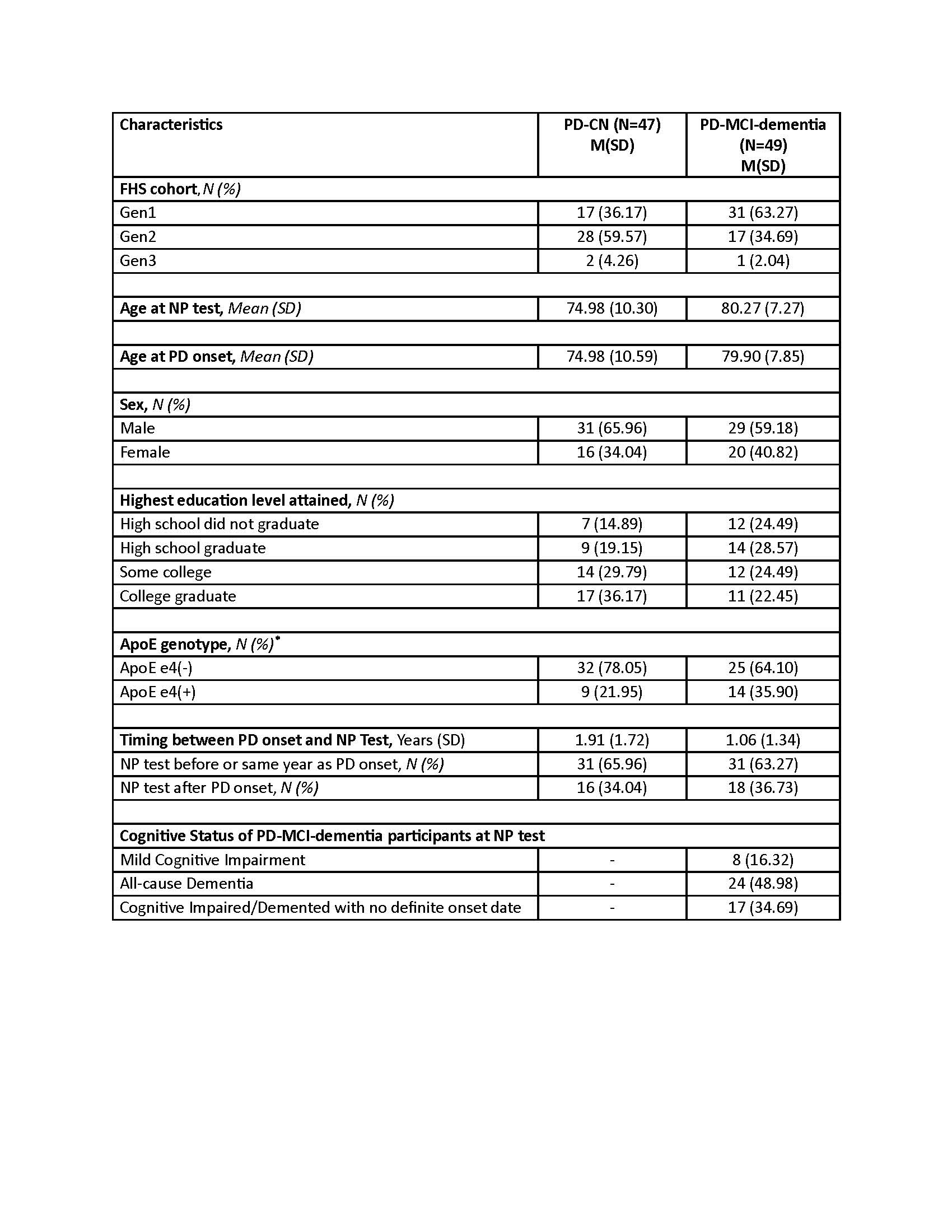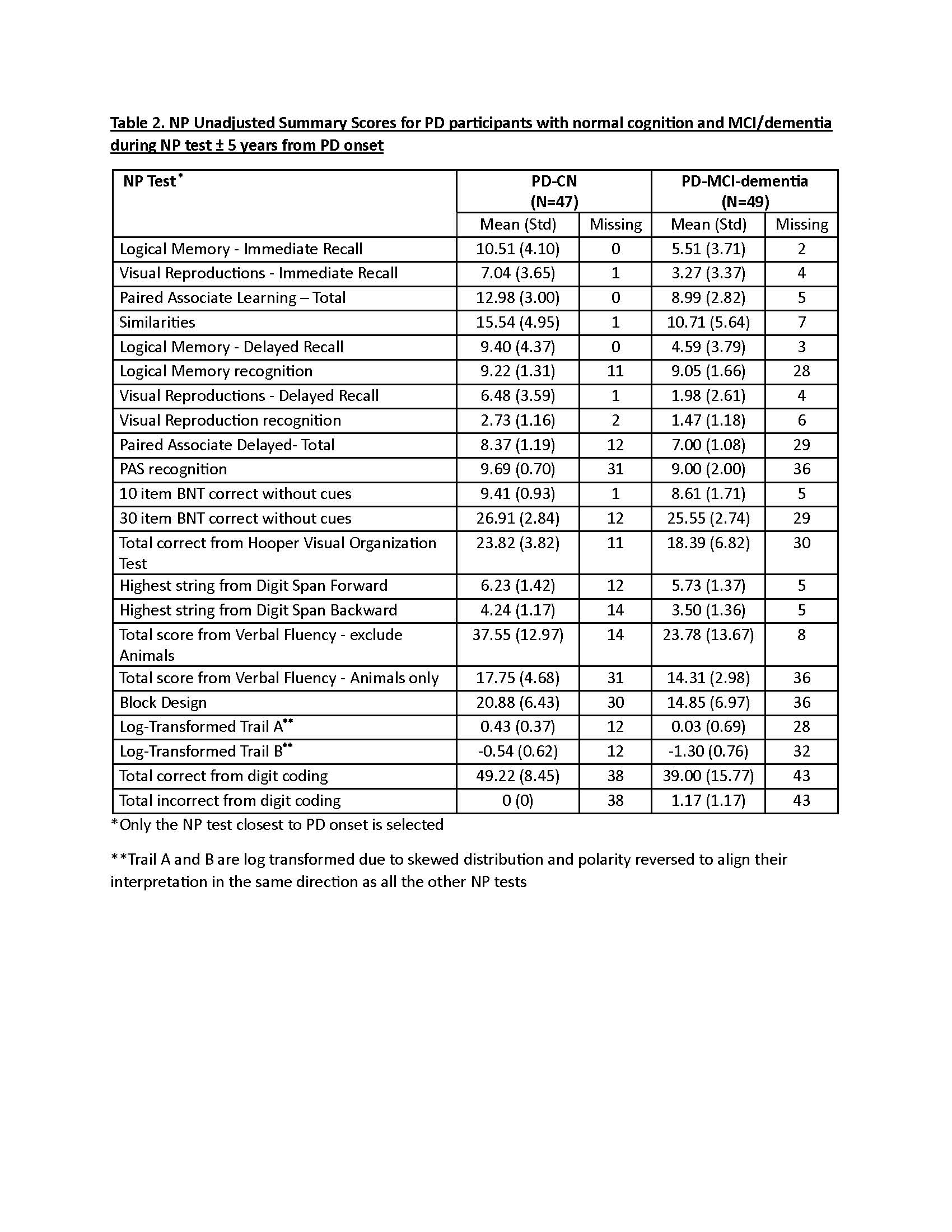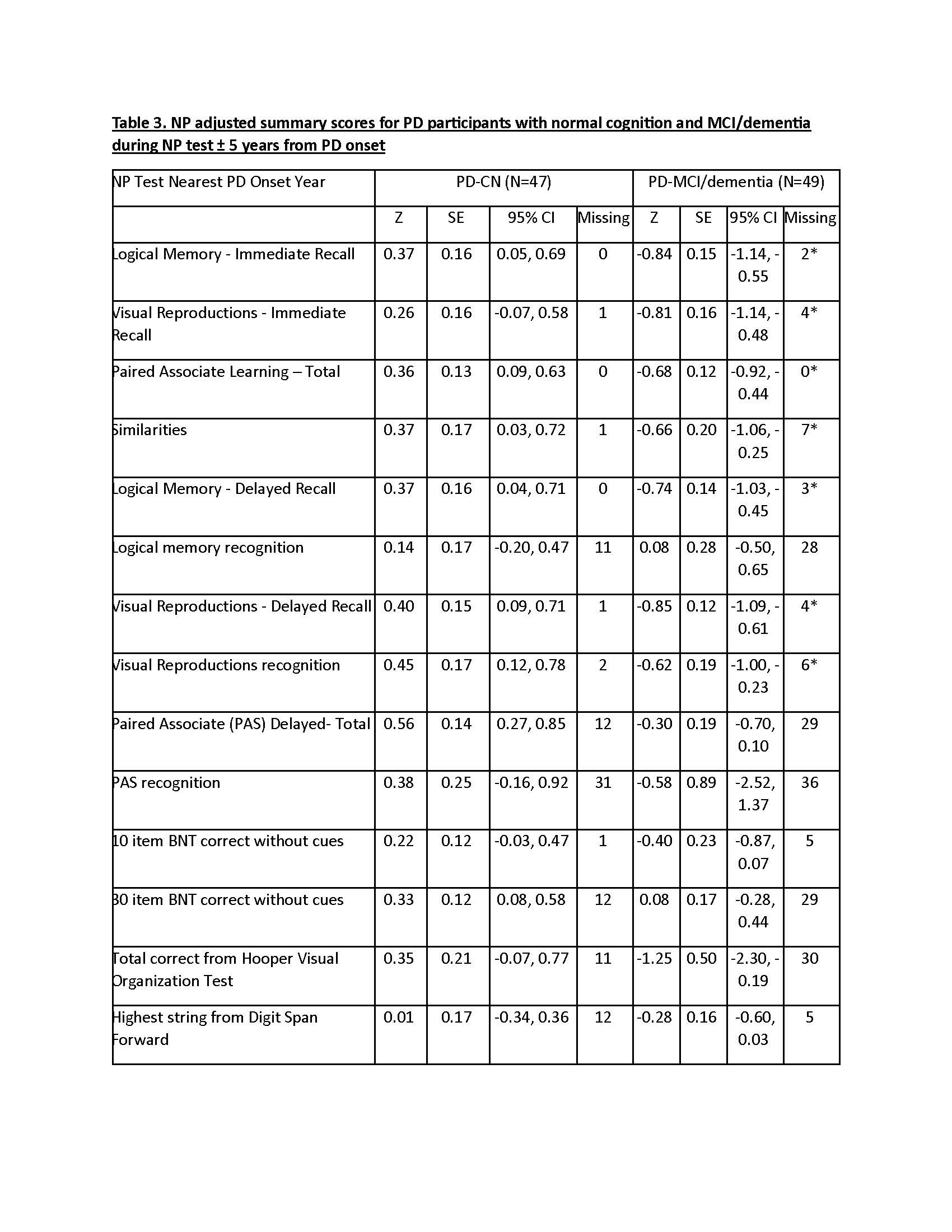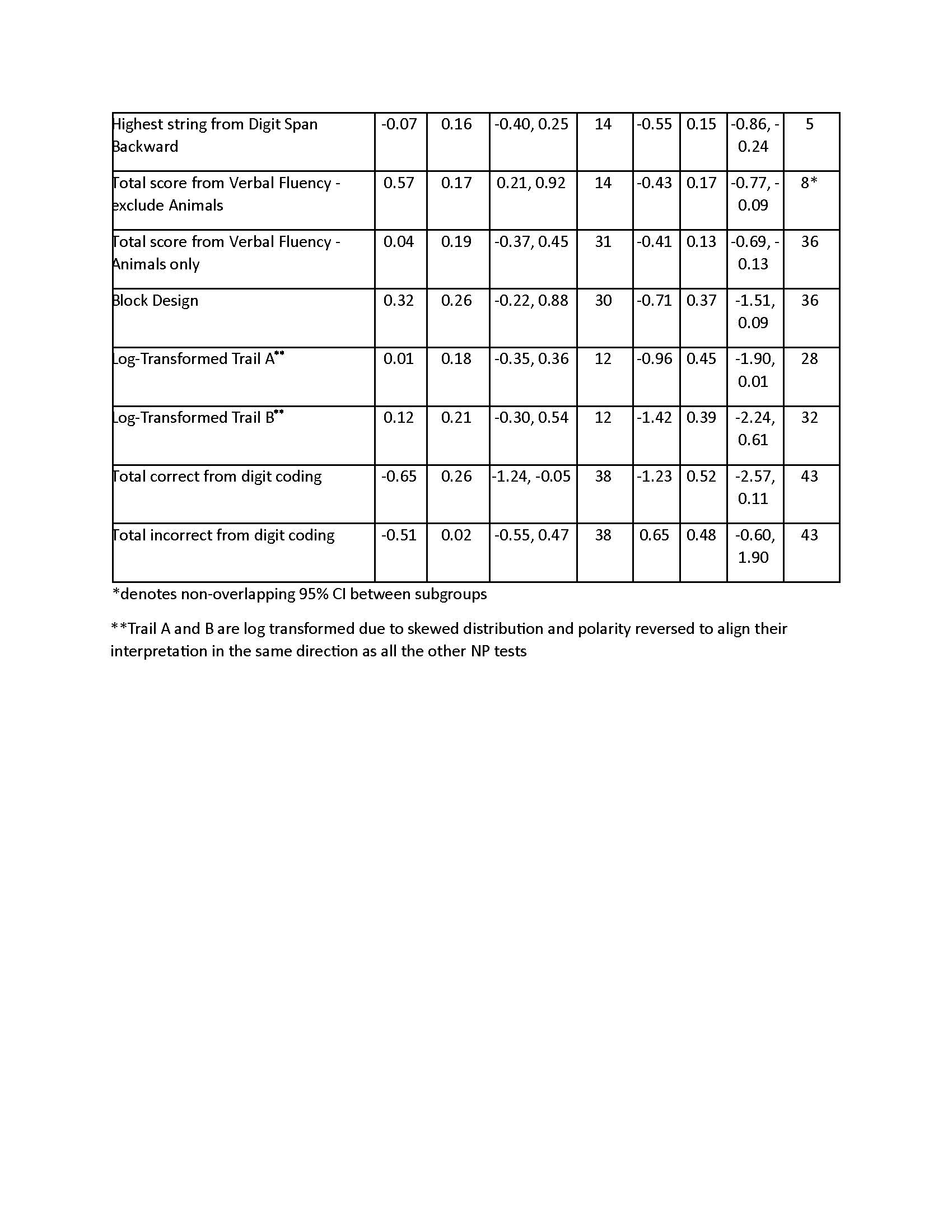Category: Parkinson's Disease: Cognitive functions
Objective: Characterize the cognitive profiles of individuals with PD within a population-based study
Background: Understanding the cognitive state of those with PD early in its course has consequences on functioning, caregiver burden, and mortality. Most epidemiologic studies of PD use brief neuropsychological batteries or cognitive screens that are insufficiently sensitive to detect cognitive changes. This study aims at describing cognitive performance among individuals with PD within a longitudinal, community-based, epidemiological study.
Method: The sample consisted of the FHS Original and Offspring cohorts. Surveillance for incident dementia has been conducted since 1976 including serial neuropsychological assessments (NP) since 1999. Participants (ppts) were deemed to have PD based on consensus adjudication by two movement disorders neurologists, based on the UK Parkinson’s Disease Brain Bank Diagnostic Criteria. Mild cognitive impairment (MCI) or dementia was diagnosed through consensus adjudication based on DSM IV and Petersen criteria. Descriptive statistics were derived from ppts NP exam closest to PD onset. Cases with exams greater than 5 years from PD onset were excluded.
Results: Ppts with PD (n=190) were white, non-Hispanic adults (M age, 77.78 ± 9.23), 62.5% male, and 80% with at least a high school degree. About half the ppts had at least one NP test within 5 years of PD diagnosis (n=96); 65% had their closest NP test before or in the same year as their PD diagnosis and mean timing between NP test and PD onset was 1.5 years. For the 47 cognitively normal (PD-CN) individuals deemed at the time of the NP test, age-, sex-, and education-adjusted z-scores were comparable to the non-PD group, with exception of significantly lower performance on symbol digit coding (z=-0.65, 95%CI [-1.24, -0.05]). The 49 ppts with PD that were cognitively impaired or demented at the time of their NP test had significantly worse performance than the PD-CN group on tasks of verbal learning (z=-0.84, 95%CI [-1.14, -0.55]) and verbal memory (z=-0.74, 95%CI [-1.03, -0.45]) and visual learning (z=-0.81, 95%CI [-1.14, -0.48]) and visual memory (z=-0.85, 95%CI [-1.09, -0.61]).
Conclusion: In this community-based study, individuals with PD who eventually developed cognitive impairment or dementia had observable differences in cognitive performance near the time of PD onset and across multiple cognitive domains.
Table 1
Table 2
Table 3 part 1
Table 3 part 2
To cite this abstract in AMA style:
A. Gurnani, J. Dookhy, Y. Liu, Y. Li, S. O'Shea, S. Frank, R. Au, J. Mez, T. Alvin Ang, L. Shih. Cognitive profile of Parkinson’s disease (PD) in the Framingham Heart Study (FHS) [abstract]. Mov Disord. 2024; 39 (suppl 1). https://www.mdsabstracts.org/abstract/cognitive-profile-of-parkinsons-disease-pd-in-the-framingham-heart-study-fhs/. Accessed April 15, 2025.« Back to 2024 International Congress
MDS Abstracts - https://www.mdsabstracts.org/abstract/cognitive-profile-of-parkinsons-disease-pd-in-the-framingham-heart-study-fhs/




